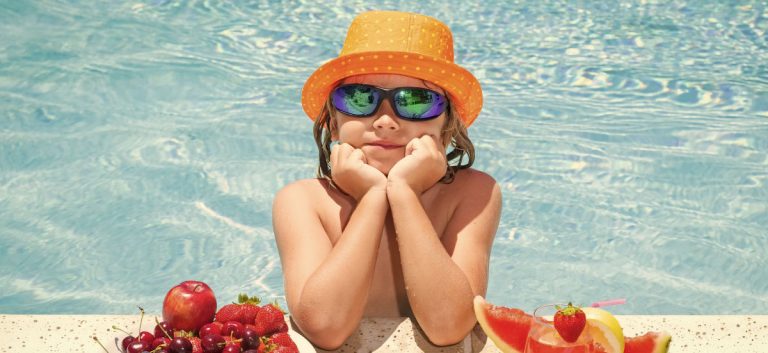
Protecting your eyes in summer
It’s a no-brainer that we need to protect our skin in summer but did you know that protecting your eyes is just as important? In this post, our head office team tells us more about looking after our eyes in the Australian sun.
Australians, as everyone knows, love summer. More than 85% of Australians live within 50 kilometres of the beach, and we take full advantage of that – as summer approaches, the most talked about topic is always which beach we plan to go to.
Unfortunately, there is a downside. The sun’s ultraviolet rays can be dangerous to unprotected skin – and to unprotected eyes. It is a message that has taken Australians a long time to learn.
Australia has one of the highest rates of skin cancer in the world and sun damage is the leading cause of visual impairment in Australia.
It is well known that long-term exposure to UV rays can cause serious damage to our eyes. Vision impairments, like macular degeneration, ocular melanoma or cataracts – a clouding of the lenses – are common complications. In the short-term, over-exposure to UV rays can cause ‘snow-blindness’ – a condition known as ‘photokeratitis.’
Our attitudes about sun protection are changing, and healthy sun behaviours are becoming more and more common.
Even though rates for skin cancer are declining, it is not the case for eye damage caused by the sun.
Today, experts predict a sharp rise in the number of Australians who will develop cataracts in the next 20 year
Eye cataracts
There are many possible causes of cataracts, but prolonged overexposure to the sun has been determined as a major factor. This doesn’t happen in one afternoon at the beach without sunglasses, cataracts are built up cumulatively, through years of repeated overexposure. That is why small measures, like developing sun-safe habits are so important.
The 5 S’s of sun safety
Launched in 1981, the ‘Slip, Slop, Slap, Seek and Slide’ campaign by the Cancer Council of Australia has become a regular part of every Australian summer. It is one of the most successful public health campaigns in the world, and it is a message that we, at Eyecare Plus, strongly support and encourage.
Remember to…
Slip on clothing that provides a barrier between you and UV rays.
Slop on sunscreen, preferably SPF30+ and reapply every two hours.
Slap on a hat that shades the whole face – a proper hat can reduce the amount of UV rays that reach your eyes by 50%.
Seek the shade of trees, bushes or pergolas and shade sails. Babies under 12 months should always be kept out of direct sunlight.
Slide on some close-fitting sunglasses that meet the Australian Standard for UV protection.
Sun protection for kids
The risk of eye damage from over exposure to UV rays is particularly high for children, so the earlier they develop the habits of protecting their eyes, the better.
When selecting sunglasses for children, remember that the most important thing is: do they provide sun protection?
Choose sunglasses that fit closely to the child’s face – wraparounds are often the best option.
Avoid toy sunglasses or sunglasses bought at costume shops for dress-ups. They may look funny or cool, but they won’t help at the beach.
Schedule an appointment with Eyecare Plus
Sunglasses don’t have to be pricey to be effective. In Australia, the Australian Competition & Consumer Commission (ACCC) established a mandatory safety standard for all sunglasses and spectacles sold in the country. It goes by the official designation of ‘AS/NZS 1067.1:2016.’
Admittedly, it is not easy to remember ‘AS/NZS 1067.1:2016,’ however, it is easy to remember that all sunglasses sold at Eyecare Plus locations meet these standards and they can be trusted to provide the protection you need.
Be sure to speak with us and let us know about the types of sunglasses you are looking for and how you intend to wear them – there are different categories for sunnies across a range of activities: for beach and sport, for driving and for fashion.
We’ll be able to best advise you on what to wear and when to wear it to ensure you make the most out of this summer – and many summers to come.
This website does not provide medical advice. It is intended for informational purposes only. It is not a substitute for professional medical advice, diagnosis or treatment. Never ignore professional medical advice in seeking treatment. If you think you may have a medical emergency, immediately dial Triple 0 (000).
